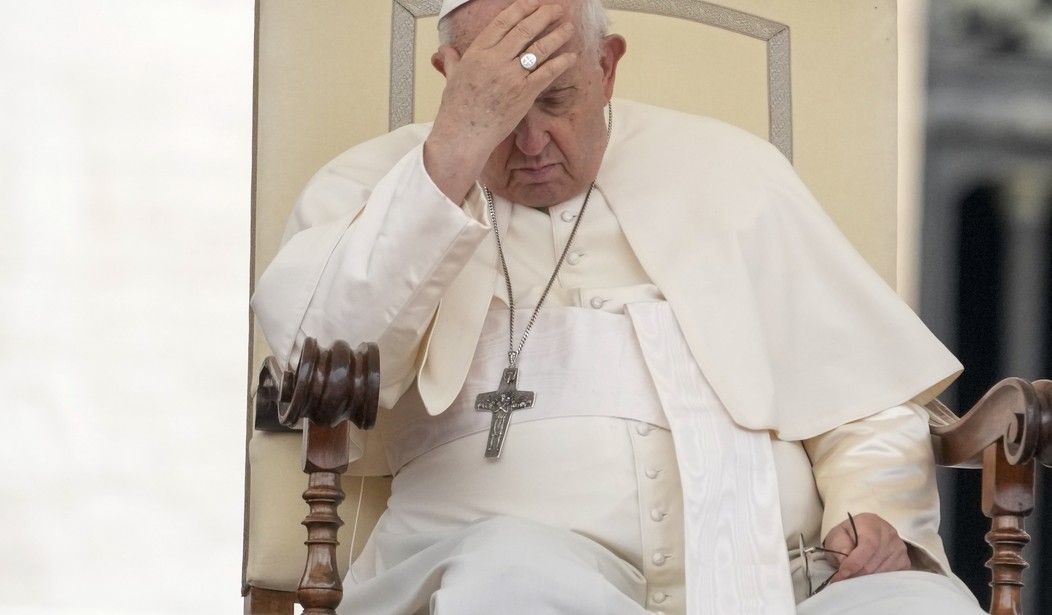In a television interview watched by millions, Pope Francis recently made a comment about hell that has been widely reported.
In the words of the Catholic News Agency:
"When asked by the interviewer, Fabio Fazio, how he 'imagines hell,' Pope Francis gave a short response. 'What I am going to say is not a dogma of faith but my own personal view: I like to think of hell as empty; I hope it is.'"
I have a different -- indeed, completely opposite -- view.
I should make it clear that I, too, hope that sometime in the future -- hopefully the near future -- no one will be sent to hell. That would mean goodness had finally so prevailed on Earth that not one person was deserving of punishment in the afterlife.
But as of this moment, I fervently hope that some people are in hell -- or whatever one wishes to call punishment after life; just as I hope some people are in heaven -- or whatever one wishes to call reward in an afterlife.
Why? Because if no one is punished after death, that would mean either there is no God or, equally depressing, it would mean God is not just.
It should be added that if no one is punished, the corollary would mean that no one is rewarded. Pure logic dictates it is not possible to have an afterlife in which people were rewarded but not punished. It would mean either everyone is rewarded -- which would mean there is no justice -- or only some are rewarded. But if only some are rewarded, that means those who are deprived of reward are thereby punished.
It shows how little serious thought is given to the subject that a vast number of people do not think the existence of a heaven and a hell are important subjects and/or dismiss them as religious nonsense.
Recommended
This absence of serious thought can be easily demonstrated. Let's imagine a society in which there were no rewards or punishments. I suspect almost no one -- though not no one, as we shall see -- thinks that would be a good society. How many people would want to live in a society in which murderers and rapists were never punished while people who engaged in exceptional goodness were never rewarded?
If that doesn't make the case, let's not imagine a whole society. Let's imagine a school. Would you send your child to a school in which students who routinely disturbed their classes and flunked all their subjects were never punished and students who excelled behaviorally and academically were never rewarded?
I assume not. So why, then, would anyone want such a scenario for all of life? Why would anyone want people who committed terrible evils not to be punished and people who committed heroic, self-sacrificing good acts not to be rewarded?
This is why I wrote that there is an absence of serious thought on this issue. What people would find utterly objectionable in their society or even just in their child's school, they are at peace with regarding life.
But there is more to this issue. People are in fact increasingly at peace with no reward or punishment in this life. This is the egalitarian impulse that is coming to dominate intellectual life. More and more people are in fact advocating such a society. No more "retributive justice." No more merit-based standards. No more valedictorians. No more failing grades. No more SATs. Indeed, no more standards. No more bail. No more punishment if you are caught stealing less than a thousand dollars' worth of goods. No more prosecutors who prosecute. Only "equity."
I am convinced that is what animated Pope Francis' words. Note that he said he was stating his opinion, not church dogma. And as a man of the Left, he's uncomfortable with reward and especially punishment. As an egalitarian, the thought that anyone is in hell disturbs him.
So, why do people who think like the Pope oppose rewards and punishments?
Because rewards and punishments mean that one must make judgments about better and worse -- morally, academically and in most other spheres of life. It's better to just assume no one is better than anyone else. That is what has animated participation trophies -- no one, not even a team, is better or worse. In much of the contemporary intellectual world, the greatest sin is judging sin. And when you do away with sin, you do away with hell.

























Join the conversation as a VIP Member